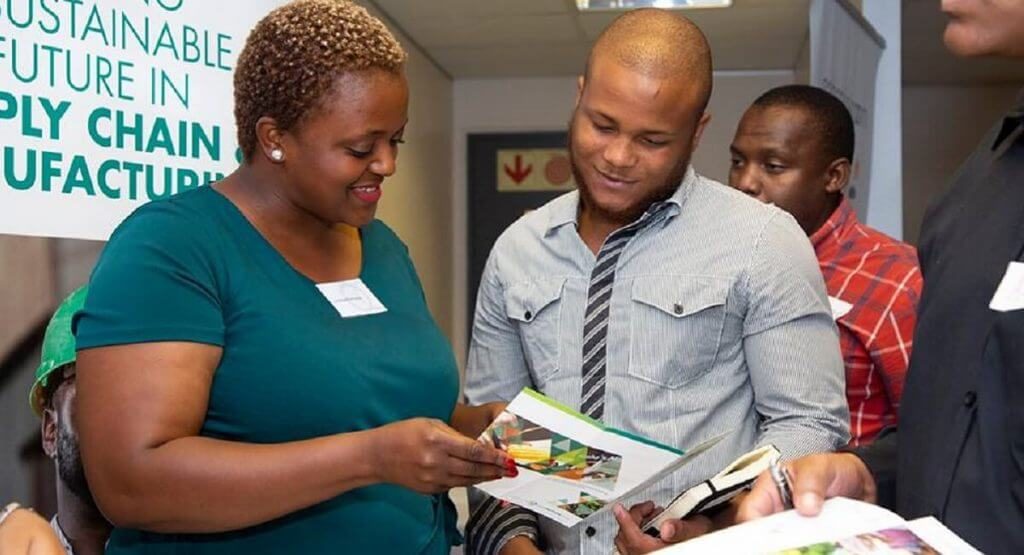
To celebrate the New Year, a number of startup founders, accelerator heads and ecosystem stakeholders will be sharing with us their plans for the new year and their biggest wish for the local entrepreneurship ecosystem in 2019.
Last year the Enterpriseroom Hub collaborated with some of the country’s biggest corporates as part of a procurement series titled ‘Doing Business With’ which saw Old Mutual, IBM and Discovery Health and Nedbank, among others, come together to educate small business owners about each of their supplier development programmes. The event was hosted as part of Global Entrepreneurship Week celebrations in November.
According to the Enterpriseroom Hub website, their goal is to be “SME-centric” and to help accelerate small and medium-sized black-owned businesses (SMEs), while creating opportunities for youth employment as SMEs grow and expand.
Tracey Webster, CEO of the Enterpriseroom Hub, spoke to SME South Africa about the need for corporates to be intentional about opening up their supply chain, provide financing and access to mentorship.
How do you see the Enterpriseroom Hub continuing to help SA’s entrepreneurs in this year?
Enterpriseroom firmly believes that economic growth, job creation and transformation of lives will come through starting, growing and accelerating SMEs. This year we are committed to working harder to bring “Big Business” even closer to “Small Business”.
After a successful Global Entrepreneurship Week activation at our hub in November last year, where we had procurement officers speaking directly to SMEs providing them with advice on how to access contracts, we realise that we have a critical role to play in making real connections happen.
It is only when corporates are intentional about opening up their supply chain, provide financing and access to mentorship for small business that things start to really shift for SMEs. At the same time SMEs need to deliver with excellence, so we will continue to mentor SMEs ensuring they are compliant, their back office is in order and running effectively – late payments can kill the cash flow of a small business, so invoicing on time and chasing up late payments is critical.
This year we are committed to working harder to bring “big business” even closer to “small business”
Supporting small business with HR functionality, driving sales, pricing and operational efficiencies will prepare SMEs for growth. Activating more networking events is also key for SMEs to start doing business with each other and spotting opportunities. Those are some of the activities we will be planning this year.
What are some of the developments you are hoping for in the coming year, with regard to the ecosystem, the entrepreneurs themselves and support mechanisms available?
We need to build stronger relationships with government to see how we can proactively lobby for more favourable regulatory requirements for SMEs. If jobs are to be created through SMEs then we need to ensure the regulation supports them; currently the labour laws are too onerous for SMEs and in turn the SMEs are fearful of hiring staff. This needs to change.
We would like to see constructive action-orientated workshops happening with the Department of Small Business Development to really get to grips with the needs of SMEs with regards to how the regulations hinder business and to agree tangible actions for the department to implement. This will require a shift in posture, government needs to do the listening – SMEs, entrepreneurs and business development providers are at the coal face and really have a handle on the issues and are clear about the solutions required to stimulate this sector.
Access to working capital is what SMEs need and this is hard to find, I would like to see more corporates setting aside ESD funds for loans and in some cases grants to support SMEs at the startup phase and growth phase of their businesses. Corporates should allocate funding for BDS providers to support the SMEs to really build solid foundations and support while they are in a growth phase.
What can we look forward to from the Enterpriseroom Hub in 2019?
We launched a women’s entrepreneur network in September last year, and it was very well attended. We are organising all of their suggestions to ensure we build a relevant and powerful network.
We hope to secure some sponsors to effectively build it out. This is a space where women get to support each other, we create business opportunities for them and tackle topics that are relevant to women in business. Through Virgin Unite we hosted an event for our women where they got to be mentored by leading entrepreneurs [from across the globe] who were out here in South Africa, so creating interesting networking beyond the borders of South Africa is important to us.
What is your wish for SA entrepreneurs for 2019?
I fear we have an incredibly tough time ahead of us this year, and so my wish is that every entrepreneur fights to keep their doors open, perfects their offering, always maintains a posture to learn, is more proactive in voicing their frustration with onerous regulations to adhere too, creates a job where they can, and that they dazzle corporates when they secure contracts in order to change their perception of doing business with small businesses.


